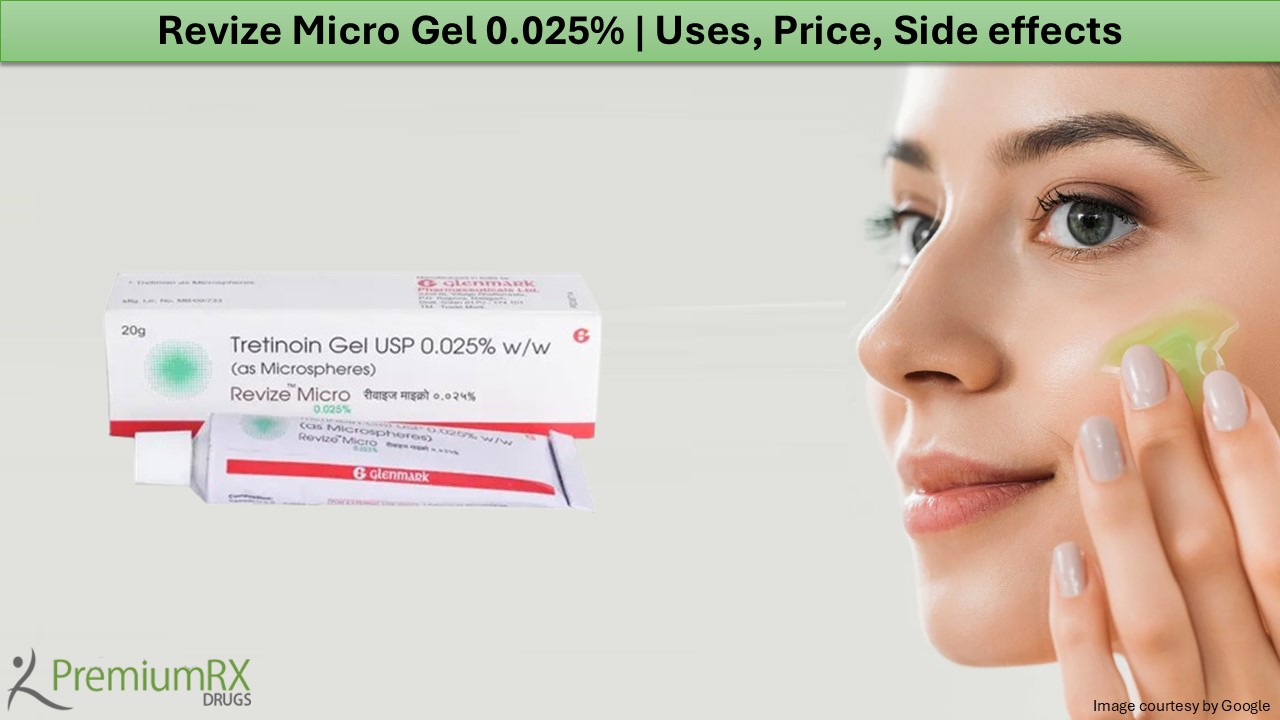If you are looking to combat skin concerns like acne, fine lines, and dark spots, you have likely come across tretinoin cream and gel options. Both are popular topical formulations with proven effectiveness, but which one is a better option for your specific skin issues? Let’s explore the similarities and differences between Revize micro gel and retinoid cream formulations, including in which situations each fits best.
Introduction
Revise Micro gel is a topical prescription medication that your dermatologist may prescribe to manage acne. Because Revize micro gel and retinoid creams both contain the active ingredient tretinoin, you may wonder if they offer the same benefits. Despite the similar active ingredient, Revize Micro gel and retinoid creams aren’t exactly alike. There are significant differences between these two types of formulations, primarily in how they are formulated and how they deliver the active component to the skin. Tretinoin is available as a cream or a gel, and the delivery method is one of the main differences between the two formulations. Here is a detailed comparison of Revize Micro gel and retinoid cream formulations.
What is Revize micro gel?
Revize micro gel aims to release retinoid in a controlled way. It contains tretinoin, which is a retinoid available in a microgel formulation. These gels are typically formulated to deliver the active ingredient slowly, minimising the risk of immediate irritation. It provides a lighter, non-greasy feel, extremely useful for acne-prone skin. The micro-formulation provides hydration without leaving the skin feeling sticky. These features can make this retinoid treatment more tolerable, thereby improving adherence.
Other Retinoid Creams: What Are the Alternatives?
When we talk about retinoids, these include:
- Simple tretinoin creams (non-microsphere/non-micro) like Retino A cream and Tretin: These are highly potent and work quickly for acne and photoaging.
- Synthetic retinoids, such as adapalene and tazarotene, are available. Adapalene is slightly less potent but extremely effective for treating acne and mild irritation. Tazarotene is strong but tends to be more irritating.
- Retinols (over-the-counter, milder forms): These are weaker and require conversion in the skin to retinoic acid. Deliver slower results, but with a gentler nature.
Key points of comparison
Regular prescription-strength tretinoin cream is highly potent because it contains the active retinoid, tretinoin, which does not require conversion. Hence, it works faster for the removal of acne and photoaging. They are more likely to cause dryness and peeling, especially during the initial days. It comes in a wide variety of concentrations and should be started with a lower strength. Cream formulations are richer, but not good for oily skin. As compared to creams, gels are lighter but can dry out more quickly. Strong evidence demonstrated the effectiveness in reducing acne, fine lines, and pigmentation.
What are the similarities/dissimilarities?
Revise Micro gel or retinoid creams, both types of topical medications contain the same active ingredient, called tretinoin. The active component of a medication is what makes it work.
Advantages of using Revize Micro gel over retinoid creams
- Reduce irritation: Because the microgel delivers tretinoin gradually, many users report a less stinging sensation and less intense peeling during the initial days of treatment compared to classic tretinoin creams at the same strength.
- Better texture, especially for oily skin: The gel formulation tends to be less sticky, making it a reliable option in humid/hot climates.
- More tolerability: With Micro gel, you get more power of tretinoin (strong anti-acne, strong anti-ageing and pigmentation effect) in addition to somewhat gentler side effects
Disadvantage
- Even microformulations can still irritate. Dryness, skin purging, and peeling are expected, especially during the first few days of the treatment.
- For persons with very sensitive skin or specific skin conditions (such as eczema or rosacea), microgel is still too harsh compared to adapalene or milder retinoids.
- Some users report difficulty sourcing microgel formulations.
Slow results may be observed compared to strong retinoids in some cases; therefore, they require patience and consistent use.
Evidence from research: Researchers and dermatologists list microgel formulations among their preferred options, particularly given patients’ tolerance to them.
Which works best?
When it comes to tretinoin formulation, there is no one-size-fits-all. The best retinoid is one that aligns with your skin type, your skin goals (such as acne, wrinkles, or pigmentation), your tolerance for side effects, and your ability to be consistent. Below are the situations, and which options are likely better:
- For oily/acne-prone skin, you need strong results and can tolerate some side effects. Hence, Revize Micro gel or plain tretinoin at moderate strength can be used with tolerability.
Latest posts by Marie (see all)
- Eflora Cream: Uses, Benefits, and How It Slows Facial Hair Growth - January 29, 2026
- Desonide Cream for Skin Allergies: Everything You Need to Know - January 27, 2026
- Careprost for Thin Lashes: Who Should Use It and Who Shouldn’t - January 24, 2026




